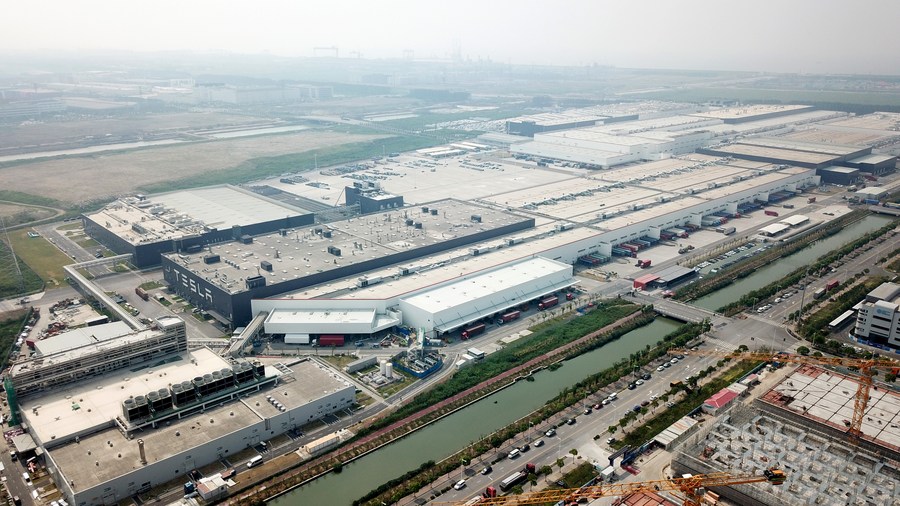
This aerial photo taken on Aug 20, 2022 shows the Tesla Gigafactory in the Lingang new area of the China (Shanghai) Pilot Free Trade Zone in East China's Shanghai
Multiple sources told China Daily that Tesla Inc has yet to receive regulatory approval from Chinese authorities to launch its full self-driving or FSD functions in the country and is seeking permission to gather some data on its own to train its autonomous driving system.
The United States vehicle maker announced last month on the social platform that it expected to launch FSD in China in the first quarter of 2025.“The rollout progress is not expected to mirror the speed as the company itself planned,” several sources close to the matter confirmed.
They said that the proposal is still pending from various Chinese authorities to evaluate in an all-round way, including technology, data safety, laws and regulations, as well as other relevant standards.
Though no official green light has been given as of now, the Chinese government will partially support its trial test of FSD functions in some cities, the sources day.
As data security has been a key obstacle to a full rollout of FSD, two people close to Tesla said that Musk has proposed directly accessing some non-sensitive video data to train its autonomous driving system.
He also proactively suggested that a dedicated government team could thoroughly assess this video data to ensure its security, one of the sources said.
Other people acknowledged the matter and said that Chinese authorities didn’t give an immediate response to this request given the current rules and regulations.
According to the regulations of the Ministry of Natural Resources, automakers and developers of autonomous driving software should either apply for mapping licenses or ask a licensed company to collect, store, transform and process geographic data.
Currently, foreign firms lack the qualifications to independently gather geographic data and must partner with local entities.
To comply, Tesla has stored all data collected by its Chinese vehicles in China since 2021 and is cooperating with local companies to collect data to support its driver assistant system.





